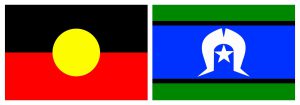A large number of Australian households struggle to access secure, affordable housing. In 2007, more than one million low- and moderate-income households were in ‘housing stress’, paying more than 30% of their income on housing. Over 100,000 Australians were homeless on the night of the 2006 census. Without assistance, these households will continue to suffer from poverty and disadvantage.
Governments provide assistance to some low-income households – via rent assistance through the social security system (Commonwealth), and via the provision of social housing (state and territory governments, and non-profit organisations). The Australian tax system also has a significant influence on the affordability of housing.
With funding from the Commonwealth Department of Families, Housing, Community Services and Indigenous Affairs (FaHCSIA), National Shelter conducted two significant pieces of work on funding and tax issues from 2009 to 2011 (on the National Affordable Housing Agreement, and on taxation and housing).
- National Affordable Housing Agreement
- Taxation and housing
- Community Organisations Housing Alliance
- Budget input
National Affordable Housing Agreement
Between March and June 2011 National Shelter held a series of round table discussions on the development of the next National Affordable Housing Agreement (NAHA) — the Council of Australian Governments agreement which covers funding for affordable housing and homelessness programs.
Five critical messages emerged from this consultation process.
- A more unified approach to housing assistance is required (for example, most households on low incomes rely on private rental accommodation, and the NAHA does not cover Commonwealth Rent Assistance).
- There was widespread support for splitting funding for social housing into two streams: an operational subsidy paid to state and territory governments on a ‘per dwelling’ basis, to cover issues such as maintenance; and a capital growth fund paid on a ‘per capita’ basis.
- There is a need for flexibility in delivery of housing assistance to ensure it meets local needs.
- There should be a strong focus on improving housing for Aboriginal and Torres Strait Islanders across Australia, including through a National Partnership Agreement on urban Aboriginal and Torres Strait Islander housing.
- Other policy issues that affect housing, such as taxation and urban planning, need to be addressed in concert with the NAHA.
- ‘Towards an improved National Affordable Housing Agreement‘, National Affordable Housing Summit, roundtable background paper, 22 August 2012
- ‘Towards NAHA Mark II: National Shelter dialogue ahead of the next National Affordable Housing Agreement and associated National Partnership Agreements’, report, July 2011
Taxation and housing
The Henry tax review, Australia’s Future Tax System Review, recommends fundamental shifts in the way land and renting and owning housing are treated by the taxation and social security systems. National Shelter prepared a report on housing issues in the Henry review in December 2010, and we developed our own response to this review in June 2011 following discussions with some of Australia’s foremost experts on taxation and housing.
- ‘Issues from the Henry report on Australia’s future tax system for housing policy’, background report, December 2010
- ‘Australia’s future tax system: balancing our taxes to remove distortions in our housing system’, National Shelter’s response, June 2011
Community Organisations Housing Alliance
As well as these detailed pieces of work, National Shelter has combined with the Community Housing Federation of Australia, the ACTU, the Australian Council of Social Service and Homelessness Australia to form the Community Organisations Housing Alliance (COHA). This alliance has been active in lobbying the Commonwealth Government for improvements in housing policy and increased funding for social and affordable housing.
- ‘Post-election housing statement’, COHA, September 2010
- ‘Letter to Prime Minister Julia Gillard’, COHA, September 2010 (the letter was also sent to Opposition Leader Tony Abbott, Senator Bob Brown, and independent Members of Parliament, Andrew Wilkie, Bob Katter, Rob Oakeshott and Tony Windsor)
In late 2008 the Commonwealth Treasurer called for public input into the framing of the 2009 Budget. National Shelter responded with a submission outlining a number of immediate priorities for funding housing programs.
- ‘Response to the Treasurer’s call for community input’, January 2009


 We acknowledge the traditional owners and custodians of country throughout Australia and their continuing connection to land, sea and community. We pay our respects to them and their cultures and to their elders past and present. Disclaimer: This website may contain images or names of people who have since passed away. Please contact us if you have concerns with any material on this website.
We acknowledge the traditional owners and custodians of country throughout Australia and their continuing connection to land, sea and community. We pay our respects to them and their cultures and to their elders past and present. Disclaimer: This website may contain images or names of people who have since passed away. Please contact us if you have concerns with any material on this website.